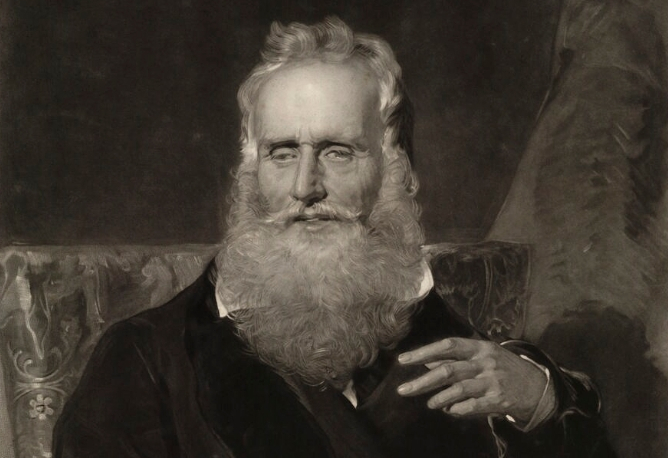323-The Blind Traveler
Futility Closet
Greg Ross
4.8 • 748 Ratings
🗓️ 14 December 2020
⏱️ 30 minutes
🧾️ Download transcript
Summary

When a mysterious illness blinded him at age 25, British naval officer James Holman took up a new pursuit: travel. For the next 40 years he roamed the world alone, describing his adventures in a series of popular books. In this week's episode of the Futility Closet podcast, we'll describe Holman's remarkable career and his unique perspective on his experiences.
We'll also remember some separating trains and puzzle over an oddly drawn battle plan.
Intro:
David Tennant's 2008 turn as Hamlet enlisted the skull of composer André Tchaikowsky.
For J.B.S. Haldane's 60th birthday, biologist John Maynard Smith composed an ode to Struthiomimus.
Sources for our feature on James Holman:
Jason Roberts, A Sense of the World: How a Blind Man Became History's Greatest Traveler, 2009.
James Holman, The Narrative of a Journey Through France, etc., 1822.
James Holman, Travels Through Russia, Siberia, etc., 1825.
James Holman, A Voyage Round the World, 1834.
Sarah Bell, "Sensing Nature: Unravelling Metanarratives of Nature and Blindness," in Sarah Atkinson and Rachel Hunt, eds., GeoHumanities and Health, 2020.
Eitan Bar-Yosef, "The 'Deaf Traveller,' the 'Blind Traveller,' and Constructions of Disability in Nineteenth-Century Travel Writing," Victorian Review 35:2 (Fall 2009), 133-154.
Pieter François, "If It's 1815, This Must Be Belgium: The Origins of the Modern Travel Guide," Book History 15 (2012), 71-92.
Joseph Godlewski, "Zones of Entanglement: Nigeria's Real and Imagined Compounds," Traditional Dwellings and Settlements Review 28:2 (Spring 2017), 21-33.
Rebe Taylor, "The Polemics of Eating Fish in Tasmania: The Historical Evidence Revisited," Aboriginal History 31 (2007), 1-26.
Mark Paterson, "'Looking on Darkness, Which the Blind Do See': Blindness, Empathy, and Feeling Seeing," Mosaic: An Interdisciplinary Critical Journal 46:3 (September 2013), 159-177.
Keith Nicklin, "A Calabar Chief," Journal of Museum Ethnography 1 (March 1989), 79-84.
Robert S. Fogarty, "Rank the Authors," Antioch Review 65:2 (Spring 2007), 213.
Daniel Kish, "Human Echolocation: How to 'See' Like a Bat," New Scientist 202:2703 (April 11, 2009), 31-33.
Robert Walch, "As He Alone 'Sees' It," America 195:17 (Nov. 27, 2006), 25-26.
Anne McIlroy, "James Holman," CanWest News, Dec. 16, 1992, 1.
Chris Barsanti, "The Blind Traveler," Publishers Weekly 243:18 (May 1, 2006), 46.
Elizabeth Baigent, "Holman, James (1786–1857), traveller," Oxford Dictionary of National Biography, Sept. 23, 2004.
My Futility Closet post on echolocator Ben Underwood.
Listener mail:
"The History of the Slip Coach," Ruairidh MacVeigh, June 27, 2020.
"By Slip Coach to Bicester," video of the last slip coach in operation.
Wikipedia, "Slip Coach" (accessed Nov. 25, 2020).
"Slip Coaches," Railway Wonders of the World, June 21, 1935.
"2 Bedroom Restored Slip Coach in Saltash, St Germans, Cornwall, England," One Off Places (accessed Dec. 3, 2020).

From listener Aleksandar Ćirković: The 19:38 train departing the main station at Nuremberg each day splits in four.
This week's lateral thinking puzzle was contributed by listener Marie Nearing, who sent this corroborating link (warning -- this spoils the puzzle).
You can listen using the player above, download this episode directly, or subscribe on Google Podcasts, on Apple Podcasts, or via the RSS feed at https://futilitycloset.libsyn.com/rss.
Please consider becoming a patron of Futility Closet -- you can choose the amount you want to pledge, and we've set up some rewards to help thank you for your support. You can also make a one-time donation on the Support Us page of the Futility Closet website.
Many thanks to Doug Ross for the music in this episode.
If you have any questions or comments you can reach us at [email protected]. Thanks for listening!
Transcript
Click on a timestamp to play from that location
| 0:00.0 | Welcome to the Futility Closet Podcast, forgotten stories from the pages of history. |
| 0:14.9 | Visit us online to sample more than 11,000 quirky curiosities from a devoted Yorick to a forlorence Truthio Mimus. This is episode |
| 0:23.0 | 323. I'm Greg Ross. And I'm Sharon Ross. When a mysterious illness blinded him at age 25, |
| 0:30.3 | British naval officer James Holman took up a new pursuit, travel. For the next 40 years, |
| 0:35.9 | he roamed the world alone, describing his adventures in a series |
| 0:39.3 | of popular books. In today's show, we'll describe Holman's remarkable career and his unique |
| 0:44.7 | perspective on his experiences. We'll also remember some separating trains and puzzle over an |
| 0:50.9 | oddly drawn battle plan. |
| 1:04.7 | From his earliest youth, James Holman had felt the urge to travel, as he put it, to explore distant regions to trace the variety exhibited by mankind under different influences of |
| 1:10.0 | different climates, customs, and law. |
| 1:12.6 | Born to an Exeter apothecary in 1786, he'd been intended for a genteel existence as an |
| 1:18.6 | Anglican cleric, but a scandal at his school led his parents to withdraw him and set him on a more |
| 1:24.4 | welcome course in the Royal Navy. After a year and a half at a naval preparatory school, |
| 1:29.7 | he enlisted three weeks after his 12th birthday and boarded the Royal George on December 7, 1798. |
| 1:36.6 | By then his ambition had expanded. He wrote, I felt an irresistible impulse to become acquainted |
| 1:41.6 | with as many parts of the world as my professional avocations would |
| 1:44.9 | permit, and I was determined not to rest satisfied until I had completed the circumnavigation |
| 1:50.0 | of the globe. His career started promisingly, but after several years aboard ship, he began to develop |
| 1:56.1 | a deep ache in his joints, which was diagnosed as rheumatism due to the cold and wet. It's not clear what |
| 2:02.3 | the illness really was, but it forced him out of the Navy at age 24, and a year later, to his |
| 2:07.5 | great dismay, it blinded him. He consulted many doctors, but none could help. The Navy declared |
| 2:13.6 | him unfit to serve and put him on half pay. His parents couldn't support him as they were still |
... |
Please login to see the full transcript.
Disclaimer: The podcast and artwork embedded on this page are from Greg Ross, and are the property of its owner and not affiliated with or endorsed by Tapesearch.
Generated transcripts are the property of Greg Ross and are distributed freely under the Fair Use doctrine. Transcripts generated by Tapesearch are not guaranteed to be accurate.
Copyright © Tapesearch 2025.

